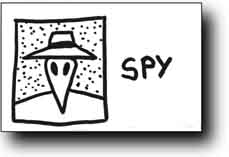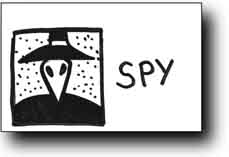
17 July 2003, The Guardian
Julian Borger reports on the shadow rightwing intelligence network set up in Washington to second-guess the CIA and deliver a justification for toppling Saddam Hussein by force
The agency, called the Office of Special Plans (OSP), was set up by the defence secretary, Donald Rumsfeld, to second-guess CIA information and operated under the patronage of hardline conservatives in the top rungs of the administration, the Pentagon and at the White House, including Vice-President Dick Cheney. The ideologically driven network functioned like a shadow government, much of it off the official payroll and beyond congressional oversight. But it proved powerful enough to prevail in a struggle with the State Department and the CIA by establishing a justification for war.
The president's most trusted adviser, Mr Cheney, was at the shadow network's sharp end. He made several trips to the CIA in Langley, Virginia, to demand a more "forward-leaning" interpretation of the threat posed by Saddam. When he was not there to make his influence felt, his chief of staff, Lewis "Scooter" Libby, was. Such hands-on involvement in the processing of intelligence data was unprecedented for a vice-president in recent times, and it put pressure on CIA officials to come up with the appropriate results. Another frequent visitor was Newt Gingrich, the former Republican party leader who resurfaced after September 11 as a Pentagon "consultant" and a member of its unpaid defence advisory board, with influence far beyond his official title.
In the days after September 11, Mr Rumsfeld and his deputy, Paul Wolfowitz, mounted an attempt to include Iraq in the war against terror. When the established agencies came up with nothing concrete to link Iraq and al-Qaida, the OSP was given the task of looking more carefully. William Luti, a former navy officer and ex-aide to Mr Cheney, runs the day-to-day operations, answering to Douglas Feith, a defence undersecretary and a former Reagan official. The OSP had access to a huge amount of raw intelligence. It came in part from "report officers" in the CIA's directorate of operations whose job is to sift through reports from agents around the world, filtering out the unsubstantiated and the incredible. Under pressure from the hawks such as Mr Cheney and Mr Gingrich, those officers became reluctant to discard anything, no matter how far-fetched. The OSP also sucked in countless tips from the Iraqi National Congress and other opposition groups, which were viewed with far more scepticism by the CIA and the state department. There was a mountain of documentation to look through and not much time. The administration wanted to use the momentum gained in Afghanistan to deal with Iraq once and for all. The OSP itself had less than 10 full-time staff, so to help deal with the load, the office hired scores of temporary "consultants". They included lawyers, congressional staffers, and policy wonks from the numerous rightwing thinktanks in Washington. Few had experience in intelligence.
The OSP was an open and largely unfiltered conduit to the White House not only for the Iraqi opposition. It also forged close ties to a parallel, ad hoc intelligence operation inside Ariel Sharon's office in Israel specifically to bypass Mossad and provide the Bush administration with more alarmist reports on Saddam's Iraq than Mossad was prepared to authorise. "None of the Israelis who came were cleared into the Pentagon through normal channels," said one source familiar with the visits. Instead, they were waved in on Mr Feith's authority without having to fill in the usual forms. The exchange of information continued a long-standing relationship Mr Feith and other Washington neo-conservatives had with Israel's Likud party.
full article....







No comments:
Post a Comment